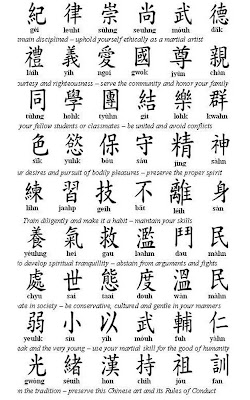The word "
refuge" may be easily misunderstood in the context of Buddhism. The dictionary definition of "
refuge" is usually as follows:
1. shelter or protection from danger, trouble, etc.: to take refuge from a storm.
2. a place of shelter, protection, or safety.
3. anything to which one has recourse for aid, relief, or escape.
(from Dictionary.com)
The term "
refuge" in Buddhism is shorthand actually takes on a different meaning. We are not looking to run away, hide, find immediate relief when we speak "I take
refuge in the Buddha, the Dharma, and the Sangha."

What we really mean is: "I am
one with the Buddha, the Dharma, and the Sangha."
Now, the term "
one" can have a double meaning as well. If we are ONE with the Triple Treasure, we do have protection within our mind, body, and spirit. But taking
refuge should not be seen, implied, or even imagined as an escape from reality or an immediate alleviation.
When we truly practice and have a deep faith within Buddhism, we are a part of the Buddha, the Dharma, and the Sangha. We live it in our daily lives, instilling it into our bones and marrow. We cannot be separated from it and it cannot be separated from us.
So remember the next time you recite the verse of the Triple Treasure, Triple Gem, (etc.), you are not escaping into them, your are affirming that you are one with them. This will bring much more strength and meaning into the recitation alone.
Gassho.
















